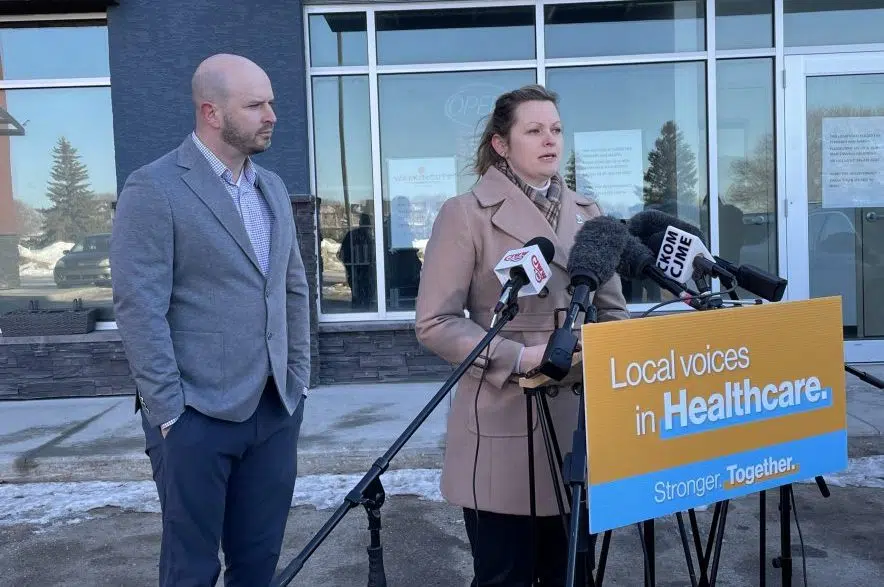Local health-care leaders are feeling shut out of the process of making decisions that impact their communities, according to the Saskatchewan New Democrats.
Vicki Mowat, opposition health critic, said Monday the province is in need of more local voices to speak to the problems that are happening on the ground in health care and be responsive to community health needs.
When Saskatchewan’s health regions amalgamated in 2017, Mowat said Community Health Advisories were dismantled — a forum for ensuring unique solutions stemming from communities and physicians would be moved forward to the provincial government.
With the loss of these networks, Mowat said centralizing health care out of the premier’s office has been hurting the delivery of health care.
“We know that when there is a vibrant health centre in a community or a vibrant hospital, this is an incentive for people to move to a community (or) to stay in a community,” Mowat told the media outside the Warman Medical and Urgent Care Centre.
The Saskatchewan Urban Municipalities Association (SUMA) has also introduced a resolution geared towards greater community involvement in health-care decision-making, calling on Health Minister Paul Merriman to ensure direct municipal input and involvement in the health system by requiring community health advisory networks throughout the province.
Matt Love, the NDP’s rural and remote health critic, said losing track of what’s happening locally is a sure way to lose the ability to respond.
He echoed a sentiment put forth by Mowat — that Saskatchewan, as the birthplace of medicare, has the ability to rebuild stronger than it was before. However, Love said that will require everyone to work together towards that goal.
Love and Mowat said they’ve heard from local leaders about efforts to communicate with the government.
“(They’ve been) pleading with the government to help them with recruiting doctors or nurses,” Mowat said. “(They) absolutely heard nothing back from them.”
Further, Mowat said creative solutions have come from various communities in Saskatchewan, like smaller regions coming together to brainstorm and work in tandem to, for example, provide housing as an incentive for doctors or other health-care professionals to come to their community.
“What do we actually need? Where can we centralize the services?” Mowat said, repeating some of the questions being asked in these collaborations. “Can we come up with a creative, individual advertisement to bring out a new physician?
“Unfortunately, all of those advertisements are centralized, so they don’t have control over what they put out there to try and bring in a new family physician.”
Mowat also noted that bedroom communities like Warman and Martensville may exist close to the bigger urban centre of Saskatoon, but they also grapple with where to find a family doctor when none in the larger city are currently accepting new patients.
This problem isn’t recent, Love shared, citing years of the Saskatchewan government not listening to its own community leaders about what they need and what would promote change in areas of Saskatchewan that need it.











